LA and Iraq united by gangsta craving for honour and respect
What does shooting of Suge Knight have to do with execution of James Foley? Possibly a great deal

A free daily email with the biggest news stories of the day – and the best features from TheWeek.com
You are now subscribed
Your newsletter sign-up was successful
The shooting in a West Hollywood night club of Marion ‘Suge’ Knight, the real-life gangster and godfather of ‘gangsta rap’, comes as an interesting pointer to the roots of the ‘Jihadi Johns’ of Britain fomenting horror and disgust in the Middle East turmoil.
These roots do not have much to do with Islam or the wily, intricate messages woven into the Koran.
They have more to do with testosterone, ego and the very real frustration of being for the most part confined to the margins of an aggressively affluent consumer society.
The Week
Escape your echo chamber. Get the facts behind the news, plus analysis from multiple perspectives.

Sign up for The Week's Free Newsletters
From our morning news briefing to a weekly Good News Newsletter, get the best of The Week delivered directly to your inbox.
From our morning news briefing to a weekly Good News Newsletter, get the best of The Week delivered directly to your inbox.
Suge Knight, a failed American football pro with the build for the sport, founded Death Row Records in Los Angeles in the 1990s and took the violent, misogynist cult of 'gangsta rap' to the top of the billboards and into the mainstream.
As the Los Angeles Times reports, it was he who led the West Coast rappers in the 'war' with the East Coast rappers of Sean Combs, the Gatsbyesque ‘Puff Daddy’ who has evolved into the fashionable clothing and music entrepreneur ‘P.Diddy’. Their two top rappers, Knight’s Tupac Shakur and Combs’ Notorious B.I.G, were both murdered in still unsolved cases.
Knight, who has served many years in jail, was shot five times – in the arm, legs and stomach – in the 1Oak nightclub on Sunset Boulevard at 1.30 am on Sunday. He was there for a pre-MTV Video Music Awards party.
Two others, one of them a teenage girl, were also hit. All have survived and are said to be recovering in hospital. Police are searching for members of a rival gang, associated with a rapper named Game, who had been refused entry to the party.
A free daily email with the biggest news stories of the day – and the best features from TheWeek.com
It will do Knight’s legend no harm at all that he walked out of the club despite copious loss of blood.
What has this go to do with Abdel Majed Abdel Bary, the East Londoner identified as the black-hooded IS warrior who has succeeded in earning global notoriety for apparently cutting off the head of the American journalist James Foley?
Quite possibly a great deal.
The tabloids instantly coined the headline 'Jihadi John' for Bary, on the grounds that he and his gang of London caliphate crusaders tasked to guard hostages were known as 'the Beatles'. This is an insult to John Lennon, a peacenik who killed nobody whatever other faults he may have had.
But there is a macabre link because popular music has always tapped into the energy of the young and restless, and before Bary succeeded in becoming notorious, he had tried to become famous as rapper and lyricist 'LJinny'.
Christopher Dickey, of the Daily Beast website, yesterday described his doubts as to whether Bary had even carried out the decapitation – there was no blood visible below the slashing of his commando knife – or whether he had been simply the 'star' of a sophisticated video with production values worthy of the MTV awards.
If so, where did the performance and the reality meet?
Dickey is a veteran foreign correspondent who had dealings in the late 1990s with Bary’s father, Adel Abdel Bary, when he acted as ‘Londonistan’ contact for Ayman al-Zawahiri, who became the leader of al-Qaeda on the death of Osama bin Laden.
Bary père was arrested following the al-Qaeda bombings in Kenya and Tanzania in 1998, and finally extradited to America in 2012, where he is now locked up and unlikely to see daylight again.
“So, the younger Abdel Bary’s upbringing may have given him a special grudge,” writes Dickey, “and also a taste for the spotlight. Clearly this young man, now 23, thought he might have a shot at stardom in music videos. Some of his recordings reportedly were picked up on BBC Radio 1. But hip-hop recognition apparently wasn’t enough, so last year he joined the jihad in Syria.”
Dickey points out that the jihadists have the three qualities common to all terrorists - TNT; testosterone, a narrative of being downtrodden in some way, and a desire to create theatre to attract attention.
Dickey quotes the anthropologist Scott Atran who has long argued that a jihadist’s motivations cannot be fitted within a purely rational framework of costs and benefits. "Instead they work within the context of what they come to see as ‘sacred values’ which may be religious, or may have to do more with honour and respect and, perhaps, what the 18th-century political theorist Edmund Burke called ‘the sublime’: that ‘quest for greatness, glory, eternal meaning in an inherently chaotic world'."
Gangstas would surely concur with Atran’s evocation of the craving for 'honour and respect'. Added to the raw desire to get hold of a lot 'Benjamins' ($100 bills) to buy guns, gold and dope, the two words - or their inverses, dishonour and 'dissing' - supply the motive for the great majority of the killing which plagues black America.
And 'honour and respect' are almost certainly what Bary and his jihadi cohorts think they are earning, a perverted glory that makes it all worthwhile to them.
-
 How the FCC’s ‘equal time’ rule works
How the FCC’s ‘equal time’ rule worksIn the Spotlight The law is at the heart of the Colbert-CBS conflict
-
 What is the endgame in the DHS shutdown?
What is the endgame in the DHS shutdown?Today’s Big Question Democrats want to rein in ICE’s immigration crackdown
-
 ‘Poor time management isn’t just an inconvenience’
‘Poor time management isn’t just an inconvenience’Instant Opinion Opinion, comment and editorials of the day
-
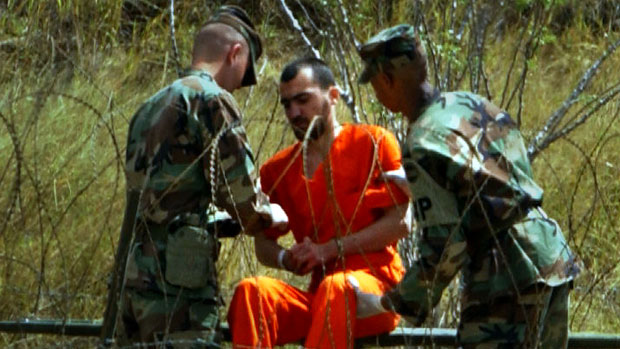 CIA torture report: US braces for international backlash
CIA torture report: US braces for international backlashSpeed Read Report due to expose sexual threats and other brutal techniques used against terror suspects
-
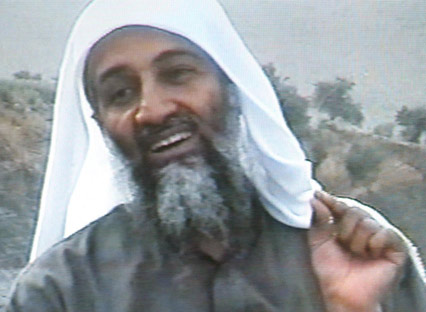 Seals fired ‘magazines-worth of ammunition’ into Bin Laden’s body
Seals fired ‘magazines-worth of ammunition’ into Bin Laden’s bodySpeed Read New claims suggest photos of Bin Laden’s body were not released because Navy Seals shot an ‘excessive’ number of rounds into him
-
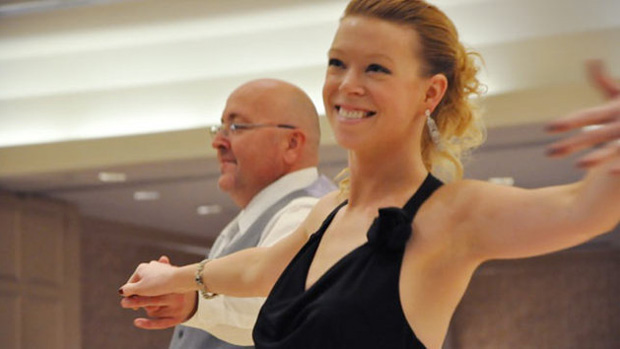 Why bomb victim Adrianne Haslet-Davis is US talisman
Why bomb victim Adrianne Haslet-Davis is US talismanIn Depth Gutsy 32-year-old dancer vows to run next Boston marathon and says bombers 'won't steal my life'
-
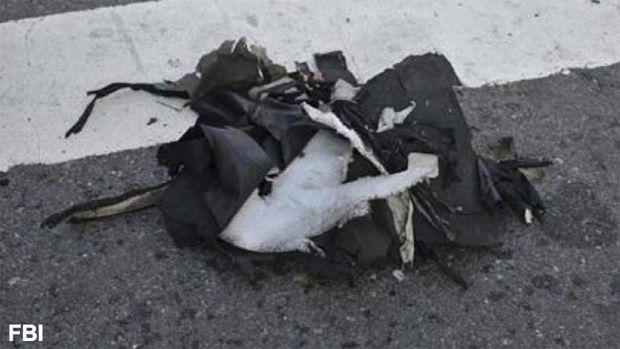 Boston: whoever did it knows how Taliban make their bombs
Boston: whoever did it knows how Taliban make their bombsIn Depth It doesn't necessarily mean the FBI are hunting a foreigner - signs still point to 'domestic terrorism'
-
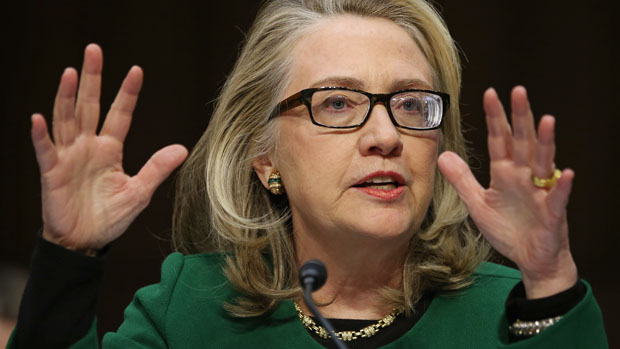 Republican 2016 hopefuls vie for headlines by savaging Clinton
Republican 2016 hopefuls vie for headlines by savaging ClintonIn Depth For right-wingers enraged by Obama's inaugural address, attacking Hillary Clinton was irresistible